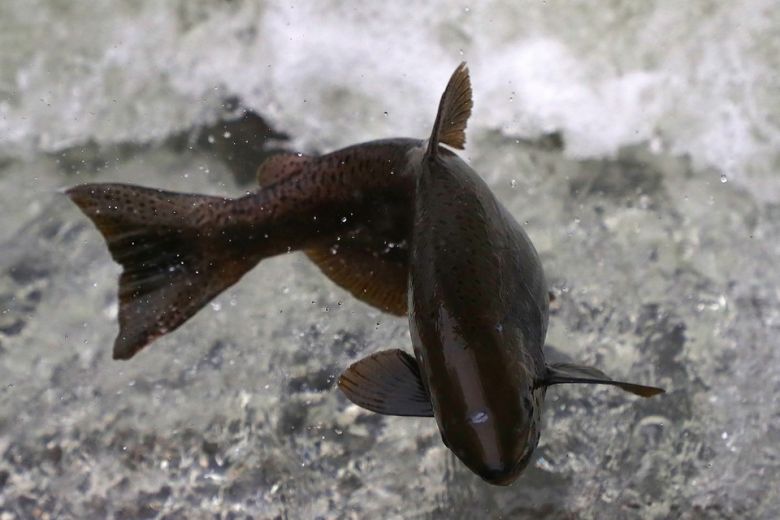Is this our last chance?
Artifishal
Salt Ankara
December 19, 2019 18.30

Still from Artifishal (2019) ©Patagonia
Goethe-Institut Ankara
Artifishal (2019)
Director: Josh Murphy
75 minutes
English; Turkish subtitles
“The road to extinction is paved with good intentions.”
Artifishal is a film about people, rivers, and the fight for the future of wild fish and the environment that supports them. The 2019 documentary explores wild salmon’s slide toward extinction, threats posed by fish hatcheries and fish farms, and impacts of aquaculture and human ignorance.
Focusing on the salmon farming industry in countries like Iceland, Norway, Scotland, and Ireland, the film investigates the high cost—ecological, financial and cultural—of the mistaken belief that engineered solutions can make up for habitat destruction. It highlights how extraordinary amount of tax money poured into an industry that hinders wild fish recovery, pollutes rivers, and contributes to the problem it claims to solve.
*According to the Intergovernmental Science-Policy Platform on Biodiversity and Ecosystem Services (IPBES) report 2019 Global Assessment Report on Biodiversity and Ecosystem Services published last May: Plastic pollution has increased tenfold since 1980, 300-400 million tons of heavy metals, solvents, toxic sludge and other wastes from industrial facilities are dumped annually into the world’s waters…
The public screening is free. Reservations are not accepted. For further information: salt.ankara@saltonline.org
In accordance with Article 7 of Law No. 5224 amended on 18.01.2019,
films that have not been assessed and classified by the General Directorate of Cinema, Ministry of Culture and Tourism of Republic of Turkey, can only be screened under the classification of 18+ at festivals, special screenings or similar culture and arts events.
Artifishal (2019)
Director: Josh Murphy
75 minutes
English; Turkish subtitles
“The road to extinction is paved with good intentions.”
Artifishal is a film about people, rivers, and the fight for the future of wild fish and the environment that supports them. The 2019 documentary explores wild salmon’s slide toward extinction, threats posed by fish hatcheries and fish farms, and impacts of aquaculture and human ignorance.
Focusing on the salmon farming industry in countries like Iceland, Norway, Scotland, and Ireland, the film investigates the high cost—ecological, financial and cultural—of the mistaken belief that engineered solutions can make up for habitat destruction. It highlights how extraordinary amount of tax money poured into an industry that hinders wild fish recovery, pollutes rivers, and contributes to the problem it claims to solve.
*According to the Intergovernmental Science-Policy Platform on Biodiversity and Ecosystem Services (IPBES) report 2019 Global Assessment Report on Biodiversity and Ecosystem Services published last May: Plastic pollution has increased tenfold since 1980, 300-400 million tons of heavy metals, solvents, toxic sludge and other wastes from industrial facilities are dumped annually into the world’s waters…
The public screening is free. Reservations are not accepted. For further information: salt.ankara@saltonline.org
In accordance with Article 7 of Law No. 5224 amended on 18.01.2019,
films that have not been assessed and classified by the General Directorate of Cinema, Ministry of Culture and Tourism of Republic of Turkey, can only be screened under the classification of 18+ at festivals, special screenings or similar culture and arts events.

